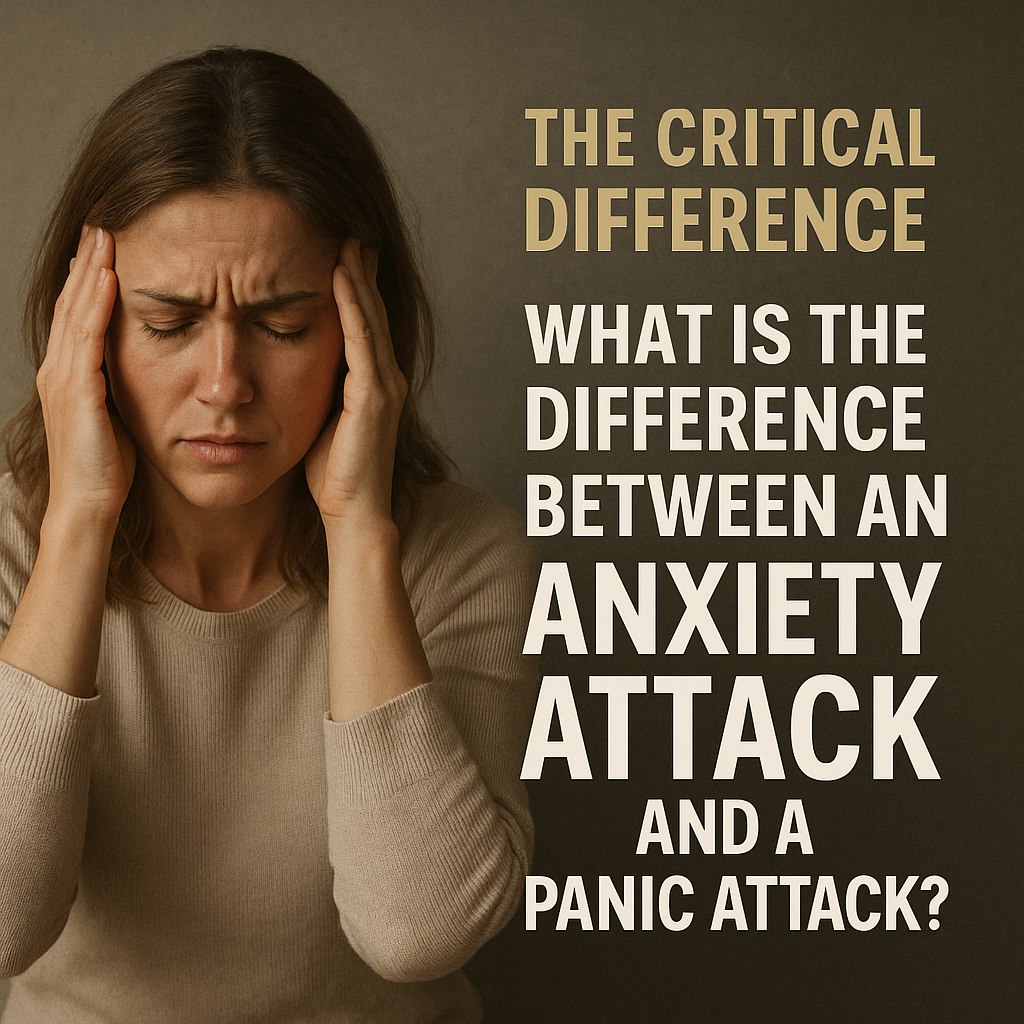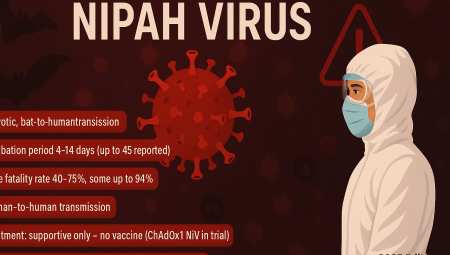It’s common to hear the terms “anxiety attack” and “panic attack” used interchangeably, but in the realm of mental health, they describe two distinct experiences. While both involve intense feelings of fear or apprehension, understanding what is the difference between an anxiety attack and a panic attack is crucial for proper identification, management, and seeking the right support.
In an era where mental well-being is increasingly prioritized, differentiating these experiences isn’t just about clinical accuracy; it’s about validating personal struggles and finding effective coping strategies. This comprehensive guide will break down the nuances, symptoms, and triggers of both anxiety and panic, empowering you with the knowledge to better understand these challenging moments.
What Exactly is the Core Difference Between an Anxiety Attack and a Panic Attack?
The fundamental distinction lies in their onset, intensity, and duration. An anxiety attack is typically a gradual escalation of anxiety symptoms, often triggered by a specific stressor or worry, and generally less intense and longer-lasting than a panic attack. A panic attack, on the other hand, is a sudden, intense surge of overwhelming fear or discomfort that reaches its peak within minutes, often without any clear trigger. It’s an acute, severe episode.
Understanding an Anxiety Attack
Anxiety is a natural human emotion, a feeling of worry, nervousness, or unease, typically about an event or something with an uncertain outcome. An anxiety attack (though not a formal clinical term in the DSM-5, it’s commonly used to describe severe anxiety) represents an elevated state of this worry.
Symptoms of an Anxiety Attack
The symptoms of an anxiety attack are often a heightened version of everyday anxiety, building up over minutes or hours. They can include:
- Emotional Symptoms: Increased worry, unease, apprehension, nervousness, irritability, feeling overwhelmed, difficulty concentrating, a sense of dread.
- Physical Symptoms: Muscle tension, restlessness, mild nausea, fatigue, difficulty sleeping, increased heart rate (less severe than panic), sweating, trembling, shortness of breath (mild).
Triggers and Duration
Anxiety attacks are typically linked to specific stressors or prolonged periods of worry. For example, a major work deadline, financial concerns, relationship problems, or a stressful social situation can trigger an anxiety attack. They tend to develop gradually and can last for extended periods, from several minutes to hours, or even days if the underlying stressor persists. The intensity is usually moderate, allowing the individual to still function, albeit with discomfort.
Understanding a Panic Attack
A panic attack is an abrupt surge of intense fear or discomfort that reaches a peak within 10 minutes. It’s often described as a sudden “bolt out of the blue,” overwhelming the individual with a terrifying sensation of losing control, having a heart attack, or even dying.
Symptoms of a Panic Attack (DSM-5 Criteria)
According to the Diagnostic and Statistical Manual of Mental Disorders (DSM-5), a panic attack is characterized by four or more of the following symptoms:
- Palpitations, pounding heart, or accelerated heart rate
- Sweating
- Trembling or shaking
- Sensations of shortness of breath or smothering
- Feelings of choking
- Chest pain or discomfort
- Nausea or abdominal distress
- Feeling dizzy, unsteady, lightheaded, or faint
- Chills or hot flushes
- Paresthesias (numbness or tingling sensations)
- Derealization (feelings of unreality) or depersonalization (being detached from oneself)
- Fear of losing control or “going crazy”
- Fear of dying
These symptoms are often so severe that people experiencing a panic attack believe they are having a medical emergency.
Triggers and Duration
Panic attacks can be unexpected (occurring spontaneously without an apparent trigger) or expected (triggered by a specific situation where a panic attack has occurred before, such as facing a phobic object). Their sudden onset and peak intensity within minutes are hallmarks. While the intense physical and psychological symptoms often subside within 5 to 20 minutes, the emotional aftermath can linger for hours, leaving the person feeling exhausted and shaken.
Key Distinctions: Anxiety Attack vs. Panic Attack
When to Seek Professional Help
If you frequently experience severe anxiety, panic attacks, or find that these experiences are impacting your daily life, relationships, or work, it’s essential to seek professional help. This includes:
- Experiencing unexpected panic attacks.
- Avoiding situations due to fear of having an attack.
- Symptoms are severe enough to cause significant distress or impairment.
- Self-medicating with alcohol or drugs to cope.
Mental health professionals, such as therapists, psychiatrists, or general practitioners, can provide accurate diagnoses and effective treatment plans. Treatments often include cognitive-behavioral therapy (CBT), medication, or a combination of both. In 2025, telehealth options also make accessing support more convenient than ever before.
Coping Strategies for Anxiety and Panic Attacks
While professional help is crucial for persistent issues, several strategies can help manage symptoms during an attack.
For Anxiety Attacks:
- Mindfulness & Grounding: Focus on your senses (e.g., 5 things you can see, 4 things you can touch). This helps bring you back to the present moment.
- Deep Breathing Exercises: Slow, deep breaths can activate your parasympathetic nervous system, promoting relaxation. Try the 4-7-8 method: inhale for 4 counts, hold for 7, exhale for 8.
- Identify & Address Triggers: Once you recognize the stressors, try to address them directly or develop strategies to mitigate their impact.
- Physical Activity: Gentle exercise like walking or stretching can help release tension.
- Journaling: Writing down your worries can help process them and reduce their intensity.
For Panic Attacks:
- Focus on Breathing: Even more critical during a panic attack. Breathe slowly and deeply through your nose, exhaling through your mouth. Count your breaths.
- Remind Yourself It Will Pass: A panic attack is an intense but temporary experience. Remind yourself that the symptoms are uncomfortable but not life-threatening.
- Grounding Techniques: Similar to anxiety, but more urgent. Hold onto something real, focus on a single object, or count items around you.
- Avoid Fighting It: Trying to suppress the attack can sometimes intensify it. Acknowledge the feelings without judgment.
- Move to a Calmer Environment: If possible, go to a quiet, less stimulating space.
Pro Tips for Managing Anxiety and Panic in 2025
- Prioritize Sleep Hygiene: Consistent, quality sleep (7-9 hours for adults) is fundamental for mental resilience. Lack of sleep can exacerbate anxiety and make you more vulnerable to panic.
- Regular Physical Activity: Aim for at least 30 minutes of moderate exercise most days of the week. Exercise is a powerful stress reducer and mood elevator.
- Limit Caffeine and Alcohol: Both substances can trigger or worsen anxiety and panic symptoms. Consider reducing or eliminating them, especially if you’re prone to attacks.
- Practice Mindful Self-Compassion: Be kind to yourself during challenging moments. Avoid self-criticism, which can intensify anxiety.
- Build a Support System: Connect with trusted friends, family, or support groups. Sharing your experiences can reduce feelings of isolation.
- Learn Your Unique Triggers: Pay close attention to what precedes your anxiety or panic. This self-awareness is your first line of defense in managing future episodes.
Frequently Asked Questions (FAQ)
Q1: Can an anxiety attack turn into a panic attack?
A1: Yes, it’s possible for a prolonged or intense period of anxiety to escalate into a full-blown panic attack, especially if the anxiety becomes overwhelming and triggers the body’s acute stress response. While anxiety typically builds gradually and is tied to a specific worry, if that worry intensifies to a level of extreme perceived threat, it can culminate in the sudden, acute symptoms characteristic of a panic attack.
Q2: Are panic attacks dangerous? Can they cause a heart attack?
A2: While panic attacks are terrifying and can mimic the symptoms of a heart attack, they are generally not dangerous and do not cause physical harm or directly lead to a heart attack in a healthy individual. The intense physical sensations are due to the body’s “fight or flight” response kicking into overdrive. However, if you have pre-existing heart conditions or are unsure, always seek immediate medical attention to rule out other causes.
Q3: How can I help someone experiencing an anxiety or panic attack?
A3: If someone you know is having an attack, remain calm yourself. Speak in a reassuring, calm voice. Ask them what they need and how you can help. Encourage slow, deep breathing. Remind them that the feelings will pass. Offer a glass of water. Avoid saying “calm down,” as this can be unhelpful. If they are open to it, suggest grounding techniques. Encourage them to seek professional help afterwards.
Q4: Is there a specific medication for anxiety or panic attacks?
A4: Yes, various medications can help manage anxiety and panic disorders. These often include antidepressants (like SSRIs, which can take a few weeks to become effective but are good for long-term management) and anti-anxiety medications (like benzodiazepines, which provide quick relief but are typically prescribed for short-term or “as-needed” use due to potential for dependence). A doctor or psychiatrist can assess your individual needs and prescribe the most appropriate medication.
Conclusion
Understanding what is the difference between an anxiety attack and a panic attack is a significant step toward gaining control over these challenging experiences. While both involve distressing feelings, recognizing their unique characteristics allows for more targeted coping strategies and, crucially, empowers individuals to seek the specific professional help they need. Remember, you don’t have to face these moments alone. With increased awareness and readily available support, effective management and recovery are highly achievable.
Have you ever experienced an anxiety or panic attack? Sharing your insights or coping strategies can help others who might be struggling. Join the conversation below.



